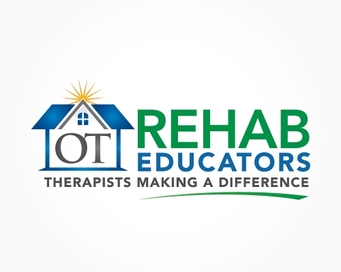VESTIBULAR SYSTEM and REHABILITATION
ANNOUNCEMENT - April, 2022
The Director of OT services, Mary Jo McGuire, has a publication in the Open Journal of Occupational Therapy
available for you to read at no cost.
The Director of OT services, Mary Jo McGuire, has a publication in the Open Journal of Occupational Therapy
available for you to read at no cost.
Click below to read the April, 2022,
|
"The function of the vestibular organ is to control balance and eye movement."
-Dr. Hamid Djalilian
Director of Otology, Neurotology and Skull Based Surgery at University of California, Irvine
The Vestibular System is the real "sixth sense" that is typically not discussed in most health classes; many people have not ever heard about this important sensory system that contributes to a person's motor skills, ability to maintain midline and an upright posture against gravity, and the ability to see clearly!
VIDEO DESCRIPTION OF THE VESTIBULAR ORGAN
Dr. Hamid Djalilian, the Director of Otology, Neurotology, and Skull Base Surgery at University of California Irvine, has created a 1 1/2 minute video describing the anatomy and function of the vestibular system.
You can view the video by clicking here:
http://youtu.be/UTqoqO2XtMQ
ONLINE RESOURCES
Clients are encouraged to explore the Vestibular Disorders Association's website at www.vestibular.org for wonderful information on the vestibular system as well as information on various disorders.
In addition, the Vestibular Disorders Association offers free educational handouts at: https://vestibular.org/understanding-vestibular-disorder/types-vestibular-disorders
ROLE OF OCCUPATIONAL THERAPY
Mary Jo McGuire, founder of Rehab Educators, co-authored a document published by the American Occupational Therapy Association on the role of Occupational Therapy in this area:
Specialized Knowledge and Skills in Adult Vestibular Rehabilitation for Occupational Therapy Practice. AJOT (2006) volume 60, number 6, pp. 669-578
BPPV or Central Vestibular Disorder?
Clients, especially those who have experienced a head injury, may experience a disorder called Benign Paroxysmal Positional Vertigo (BPPV). If the OT evaluation provides evidence that a client may be experiencing BPPV, we will refer you to experienced clinicians who can treat this disorder.
Central vestibular disorders are problems related to imbalance, somatic distress, and vestibulo-ocular problems caused by improper processing of vestibular information. Occupational Therapists explore adaptive behavior and skills (balance, gaze stabilization, somatic distress, reading, dissociation of movements between ocular and head/neck movements, etc...) related to central vestibular problems, and develop plans of care that address sensory organization, promote CNS habituation of vestibular dysfunction, and reduce negative symptoms.
More than "Balance Training"
Therapy that focuses only on motor control exercises that teach the individual to balance using their vision to compensate for the vestibular system do not always eliminate all the problems related to a central vestibular disorder. Compensating with vision can help a client walk and balance better....as long as there is adequate light; it does not, however, address the vestibulo-ocular problems or somatic distress that occurs when an individual tries to function in low light situations, or when the vestibular system is challenged beyond walking in a "normal" environment.
What does an Occupational Therapist Do?
The OT evaluation will identify all the activities in your life that are affected by the vestibular problem, and develop a therapeutic activity program designed and graded specifically for you. The point of vestibular habituation and gaze stabilization exercises are to help your brain handle the seemingly conflicting information, and return to participation in daily living activities.
Every client is different.
So is every program.


